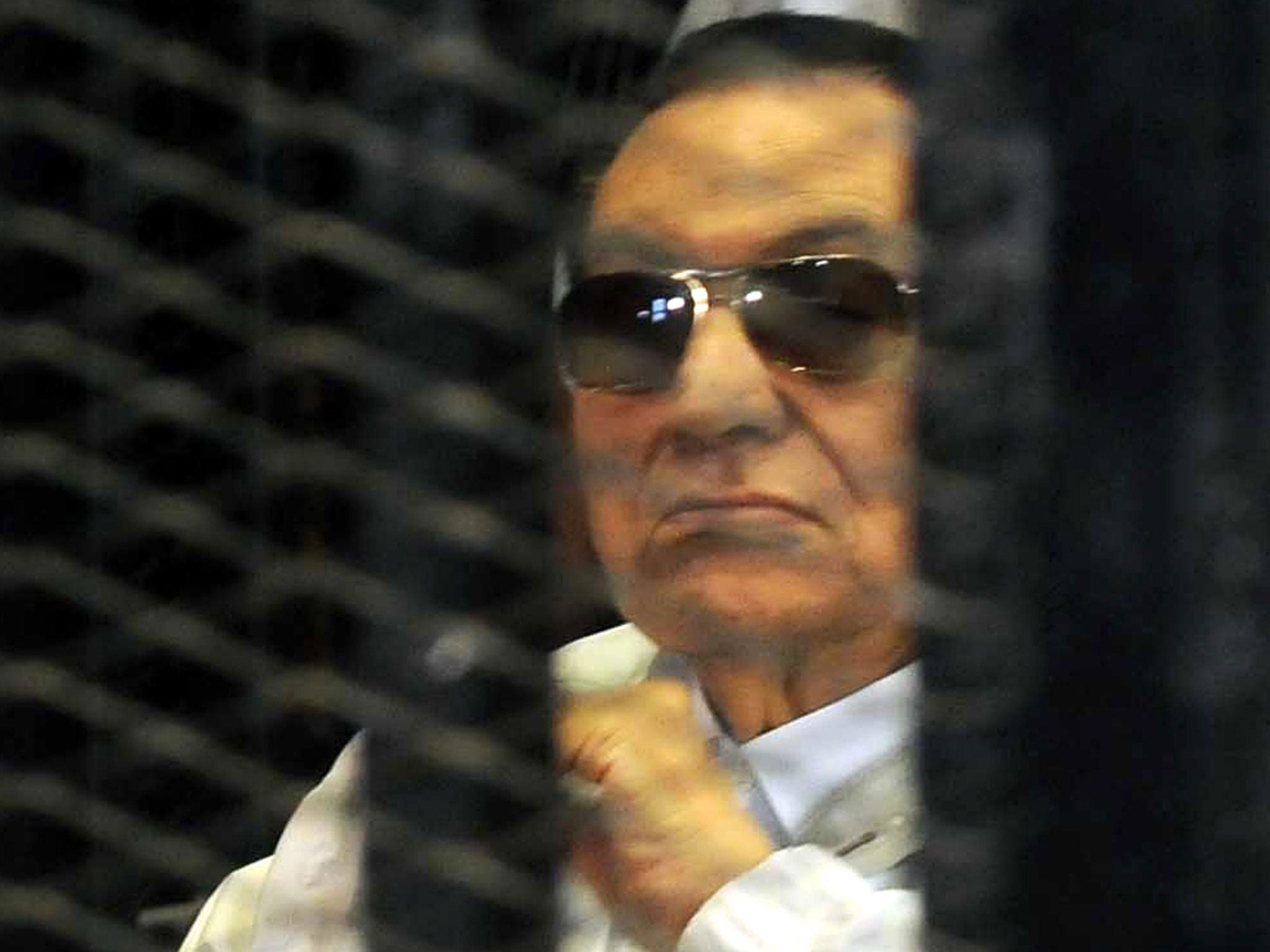Leaders of Egypt’s Muslim Brotherhood and the movement’s former arch opponent Hosni Mubarak face same charges

Your support helps us to tell the story
From reproductive rights to climate change to Big Tech, The Independent is on the ground when the story is developing. Whether it's investigating the financials of Elon Musk's pro-Trump PAC or producing our latest documentary, 'The A Word', which shines a light on the American women fighting for reproductive rights, we know how important it is to parse out the facts from the messaging.
At such a critical moment in US history, we need reporters on the ground. Your donation allows us to keep sending journalists to speak to both sides of the story.
The Independent is trusted by Americans across the entire political spectrum. And unlike many other quality news outlets, we choose not to lock Americans out of our reporting and analysis with paywalls. We believe quality journalism should be available to everyone, paid for by those who can afford it.
Your support makes all the difference.In parallel trial sessions, Egyptian courts have heard cases against ousted President Hosni Mubarak and top leaders of his arch rival, the Muslim Brotherhood, related to killings during the 2011 and 2013 protest campaigns that led to their respective downfalls.
The court trying Brotherhood leader Mohamed Badie and five other members of the Islamist group postponed hearings until October 29. The defendants, two of whom are still in hiding and being tried in absentia, are accused in relation to clashes outside the Brotherhood's Cairo headquarters on June 30 that left nine dead.
The four in detention were not present in the Cairo courtroom for security reasons. They were arrested over the last month as part of a massive crackdown on the Brotherhood following the ousting of President Mohamed Morsi, who hails from the group, and related violence.
At another courtroom in eastern Cairo, Mr Mubarak looked relaxed in dark sunglasses and a white jumpsuit in his first court appearance since he was released from prison last week and transferred to a military hospital. The 85-year-old ex-president, whose lawyer has claimed has been on the verge of death, sat in a wheelchair next to his two sons who are being tried in a separate corruption-related case.
Mr Mubarak has been in detention since April 2011, two months after he was ousted in an uprising against his rule. He was found guilty and sentenced to life in prison last year for failing to stop the killing of some 900 protesters in the 18-day uprising, but his sentence was overturned on appeal. In April, his retrial opened along with those of his security chief and six top police commanders.
The six Brotherhood members, including Mr Badie and his deputies Khairat el-Shater and Rashad Bayoumi, are charged with instigating the killings of nine protesters on June 30, when millions took to the streets demanding the ousting of Mr Morsi.
The killings took place near the Brotherhood's east Cairo headquarters, which was attacked by an allegedly anti-Morsi crowd. Dozens of Brotherhood members were trapped inside the building for hours and it was eventually set on fire. The group said the police encouraged "thugs" to attack the building while security officials at the time said that the group placed snipers atop the building.
The military toppled Mr Morsi three days later, then launched a massive crackdown on the Islamist movement, arresting top leaders including Mr el-Shater and Mr Bayoumi, rounding up field organizers and shutting down Islamic TV networks.
On August 14, riot police backed by armoured vehicles and bulldozers moved to clear two sprawling encampments of Mr Morsi's supporters, sparking violence that left more than 1000 people dead across the country. The interim presidency declared a monthlong state of emergency. Mr Badie and hundreds others were arrested in the aftermath.
The military-backed interim government meanwhile is pursuing a fast-tract transition plan that it says will return the country to democracy.
On Sunday, a 10-member panel of experts is due to hand a first draft of constitutional amendments to the interim presidency, a first step toward amending the charter drafted last year under Morsi, now suspended. A second panel of 50 members will work on the amendments before finalizing them and putting them for public vote.
Once the constitution is adopted, the plan envisions presidential and parliamentary elections held by early next year.
AP
Join our commenting forum
Join thought-provoking conversations, follow other Independent readers and see their replies
Comments